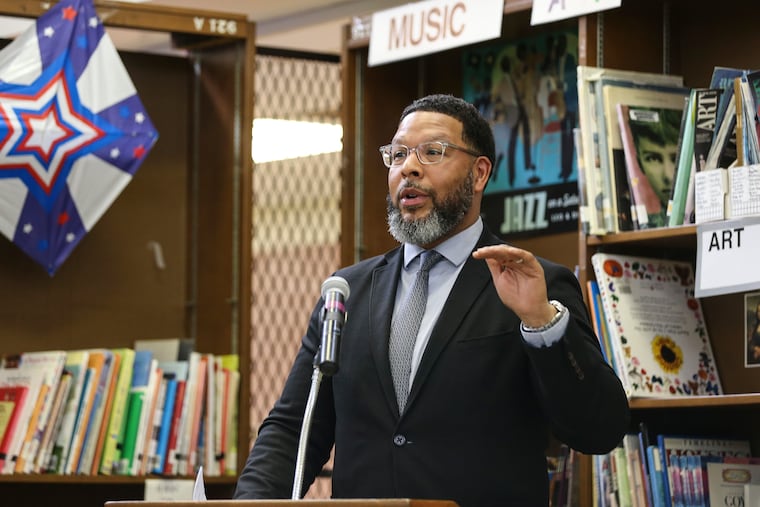Free internet access available for some now struggling to afford it, city says
The no-cost service is being expanded to families who have children receiving special education services or are English language learners, and those who participate in public benefit programs.

Philadelphia is expanding free internet access, offering no-cost service to families who have children receiving special education services or are English-language learners, and those who participate in public benefit programs with income qualifications.
PHLConnectED, a partnership between the city, School District, most charter schools, Comcast and others, has connected 12,000 families to date. Originally, the eligible included families who did not have internet access, only accessed the internet through cell phones, are experiencing homelessness or had students completing remote learning in spots without internet access.
The expansion covers some families who do have internet access, but who may be having trouble affording it, and it comes as Philadelphia’s public schools remain fully virtual, with no return to in-person education on the horizon and the city in the grip of a coronavirus spike and significant restrictions.
City officials announced the news Monday as part of a weeklong push to sign up more eligible families for the service. It’s offered either via wired internet connections through Comcast’s internet Essentials program or in the form of mobile hot spots, generally more suitable for families whose housing situation is less stable, including those living in homeless shelters.
» READ MORE: 3 people, 200 square feet: Managing homelessness, remote school, and life in a pandemic
The city’s program, paid for with $17 million in philanthropic support, guarantees free access through July 2022, though organizers hope funding will extend the offer beyond that point.
“We want to connect as many families as possible to reliable internet access,” Mayor Jim Kenney said in a statement. “As digital learning continues, access to high speed internet is more important than ever.”
PHLConnectED has money for up to 35,000 families to be connected; it’s unclear how many remain without reliable access. Earlier this year, Superintendent William R. Hite Jr. and others said an estimated 18,000 families did not have internet access, but city and district officials have since backed away from that number, saying they’re not able to approximate how many families remain unconnected.
» READ MORE: ‘A new direction’: Philadelphia school board shifts focus toward academics and equity work
Otis Hackney, the city’s chief education officer, said at a news conference Thursday that the number was “in the thousands.”
“We know that there are still significant numbers of families, but we don’t have an exact figure,” Hackney said.
To that end, the city will ramp up its efforts to connect families this week, focusing on those who started but have not completed the sign-up process. Outreach will include texts, emails, and phone calls; hot spots will also be delivered to eligible families who have not picked them up.
“We’ve long been aware of the inequities caused by the digital divide and PHLConnectED is a very real solution for us to close the gap and ensure that all children have access to the tools and resources required to successfully engage in digital learning,” Hite said in a statement.
Eligible city residents can call 211, then press 1, to start the sign-up process.
Despite the offer of free service, many Philadelphia students still report problems reliably accessing learning materials, education activists, students and teachers say.